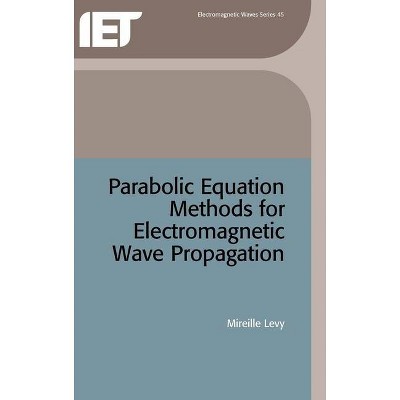John Logie Baird - (History and Management of Technology) by Russell W Burns (Hardcover)

About this item
Highlights
- Professor Russell Burns attempts to offer a balanced biography of one of the twentieth century's outstanding inventors, published to coincide with the 75th anniversary of Baird's first public demonstration of a rudimentary television system.
- Author(s): Russell W Burns
- 433 Pages
- Technology, Television & Video
- Series Name: History and Management of Technology
Description
About the Book
This is a balanced biography of one of the 20th Century's outstanding inventors, published to coincide with the 75th anniversary of Baird's first public demonstration of a rudimentary television system.
Book Synopsis
Professor Russell Burns attempts to offer a balanced biography of one of the twentieth century's outstanding inventors, published to coincide with the 75th anniversary of Baird's first public demonstration of a rudimentary television system. The author's meticulous treatment is based on primary source documents although many personal recollections are included to add humour, colour and context. A great deal of material regarding Baird's business partnerships in the early 1920s has only recently become available to researchers and is covered here for the first time.
Baird is credited in Britain and elsewhere as the inventor of television, realising a quest which for fifty years had engaged the attention of inventors, scientists and engineers. When he started work he had no regular income, no research experience and no laboratory or workshop, his work had no funding or commercial sponsorship, and initially he had no expert help. Having demonstrated a rudimentary system in early 1926 he then developed many other aspects of television and aspired to launch a low-definition television broadcasting service. To raise capital he entered various business partnerships. Holding many patents, he could have retired wealthy but he chose instead to develop his ideas further, focusing on cinema, colour and stereoscopic television, so that when he died he left only £7000.
The book illuminates Baird's life and work in many interesting ways. For example, how did Baird's technical strategy and development compare with the work undertaken in industrial laboratories? How did his development policy compare with the development of wireless by Marconi? Was his 'invention' in 1925 really outstanding?
Review Quotes
'Another thoroughly-researched, professional and beautifully-produced volume from the IEE. Burns knows his subject well and has contributed several other volumes to IEE's outstanding series.'
-- "The Old Timer's Bulletin"'Burns has written what must surely be the ultimate biography of Baird, essential reading for anyone with an interest in the life of one of Britain's most colourful inventors'
-- "British Vintage Wireless Society"'In summary, we have an admirable and definitive book which only serves to enrich the further deserved acceptance of Baird's achievements.'
-- "405 Alive"'The present volume bears the usual stamp of scholarly thoroughness which characterises other books from Burns pen. It avoids the pitfalls of previous biographies and gives a rounded picture of the great inventor. It would be fair to say, that, armed with this volume, the reader should be ready for any debate featuring the Great Man.'
-- "NBTV Quarterly"Shipping details
Return details
Trending Non-Fiction











